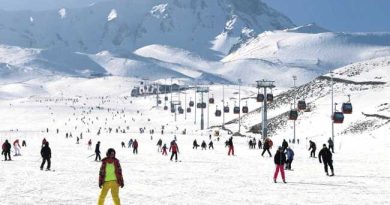Istanbul Metropolitan Municipality (IBB / IMM) announces “Istanbul Sustainable Urban Transportation Plan”

According to the plan, private car users will have to pay a fee to enter certain areas of the city. The system will first be implemented in the pilot area of Eminönü and later in the Moda district of Kadıköy.
Developed in collaboration with the European Union (EU) and the United Nations (UN), the Istanbul Sustainable Urban Transportation Plan (SKUP) aims to reduce traffic congestion, air pollution, and carbon emissions in the city while promoting public transport, walking, and cycling. The plan anticipates a 10.1% reduction in peak-hour traffic density by 2030 and a 12.8% reduction by 2040.
IMM President Ekrem İmamoğlu stated that SKUP was part of Istanbul’s journey towards a sustainable world and a future with a fair, creative, and green city.
Activities under the project include:
1. Implementing infrastructure and demand management measures to reduce car usage.
2. Developing measures in central areas (Historic Peninsula, Kadıköy, Beyoğlu, etc.) to discourage car use, increase energy efficiency in urban transportation, reduce greenhouse gas emissions, and improve urban air quality.
3. Developing measures to reduce car usage and traffic speed in areas with heavy pedestrian traffic.
4. Implementing initiatives to increase the share of sea transportation in public transit.
5. Pilot studies for access to piers in coastal districts.
6. Expanding the sea transportation network through pilot studies.
7. Small-scale applications to redesign roads to encourage active transportation modes such as walking and cycling.
8. Detailed planning and implementation of policies to pedestrianize central areas.
9. Establishing and planning corridors to connect pedestrian routes.
10. Conducting research on bus priority lanes and promoting sustainable and people-centered approaches, such as ‘Healthy Streets,’ to encourage public transport.
11. Developing roadmaps for establishing disaster-resistant urban transportation, prioritizing expected earthquakes and climate change-induced floods, as well as potential future pandemics.
Under the theme of transitioning to low carbon, one of the proposed projects to make the city’s transportation system environmentally friendly and reduce greenhouse gas emissions is the implementation of Low Emission Zones (LEZ). As part of this application, private car users will pay a fee for entering specific areas to address congestion issues in locations with intense private vehicle traffic. Vehicles that do not meet standards may either be prohibited from using the area or allowed with a fee based on the principle of “polluter pays.” The first LEZ pilot project is planned for the Historic Peninsula (Eminönü), followed by Kadıköy (Moda).
The implementation of these projects is expected to result in a 10.1% reduction in the total number of cars during peak hours by 2030 and a further 12.8% reduction by 2040.
Another parking project developed under the Istanbul SKHP is the Neighborhood Residents’ Parking Permit Plan. This plan aims to provide discounted parking opportunities for residents in areas where roadside parking becomes paid due to the widespread implementation of paid parking lots. Within this system, residents can obtain parking permits for a specific period at a lower cost than the standard parking fee. The project aims to address residents’ parking challenges in these areas.





